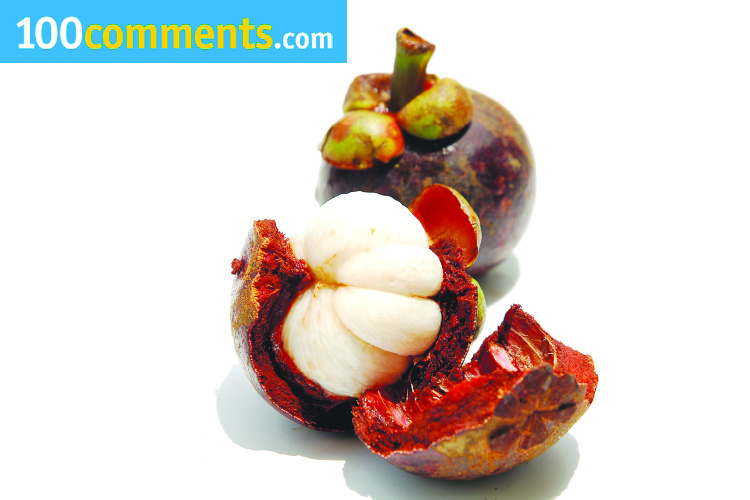The Queen of Fruits with Kingly Health Benefits
Did you know that the mangosteen is called the “Queen of Fruits” in Asia and “Food of the Gods” in the French Caribbean for its exquisite flavour and health benefits?
After studying the antioxidant properties of the Mangosteen, a new laboratory test known as Oxygen Radical Absorbance Capacity (ORAC), developed by USDA researchers at Tuft University, researchers discovered that the Mangosteen rind exhibited “potent free radical scavenging activity”
The mangosteen fruit has been used to treat illness and been recognised for its incredible health benefits in Southeast Asia for over 400 years. The fruit became even more demanding after a powerful antioxidant, known as a xanthone, was identified in 1855 by a German scientist. But that’s not all of this luscious fruit. Check out its other health benefits:
- Mangosteen stands out from other fruits as it contains a dense collaboration of xanthones in the pericarp part of the fruit, the part nearest the rind inside
- The xanthones in Mangosteen were found to be excellent anti-viral, anti-fungal, anti-bacterial and anti-hepatoxic (prevents liver poisoning) agents
- Its anti-inflammatory properties help relieve sciatica pain, as well as pain associated with peripheral neuropathy
- Mangosteen juice can also effectively treat cardiovascular diseases including atherosclerosis, hypertension, and thrombosis
- The daily use of Mangosteen, in combination with a good multi-vitamin and mineral supplement, can provide the optimum in supplementation
- The phytonutrients in Mangosteen are good immune-system boosters
- The anti-cancer activity of Mangosteen phytoceuticals specifically Garcinone E has been well-documented. Garcinone E, a xanthone found only in Mangosteen, is a natural compound and has been known to cause no side effects
- Because xanthones have anti-viral capabilities, scientists at the National University of Singapore investigated the effects the Mangosteen xanthones would have on the HIV virus. In the experiment, two xanthones demonstrated the ability to interfere with HIV protease causing the virus to remain immature and incapable of infection
- In addition to the powerful xanthones, mangosteen аlso contains polysaccharides, an incredibly potent anti-cancer and anti-bacterial plant compounds
- Mangosteen has antibacterial and antihistamine properties – helpful for people with allergies
- Mangosteen contains more than 40 biologically-active, natural chemical compounds called Xanthones
- Xanthones were discovered to possess healing properties that offer multiple benefits for every organ system in the human body
- While all these Xanthones have similar molecular structures, each one has its own unique chemical composition that permits it to perform a specific function
- In another paper studying Mangosteen’s effect on inflammation, it was noted that the xanthones do no interfere with the clotting mechanism of blood or produce stomach ulcers. Both of these are serious side effects of anti-inflammatory drugs
- Xanthone are considered to be the most powerful form of antioxidants that have been discovered on the planet to date, and thought the most beneficial characteristic of this tropical fruit
- Alpha-mangostin, for example, is a very potent antioxidant. Gamma-mangostin is a powerful anti-inflammatory. Garcinone E is a strong anti-tumour agent
- Xanthones is known to help in maintaining intestinal health, strengthen the immune system, help support cartilage аnd joint function, аnd promote a heaalthy seasonal respiratory system
- Researchers from India used the rind from Mangosteen to investigate its effects on other types of inflammation in the body.The results showed suppression of acute and chronic inflammation
- Other compounds like Quinones found in Mangostene аrе known fοr their anti-bacterial properties
- Mangosteen has anti-ageing properties, improves joint flexibility, and eases the effects of vertigo or ulcer.
- It can help prevent the onset of diseases like Alzheimer’s and Parkinson’s
















